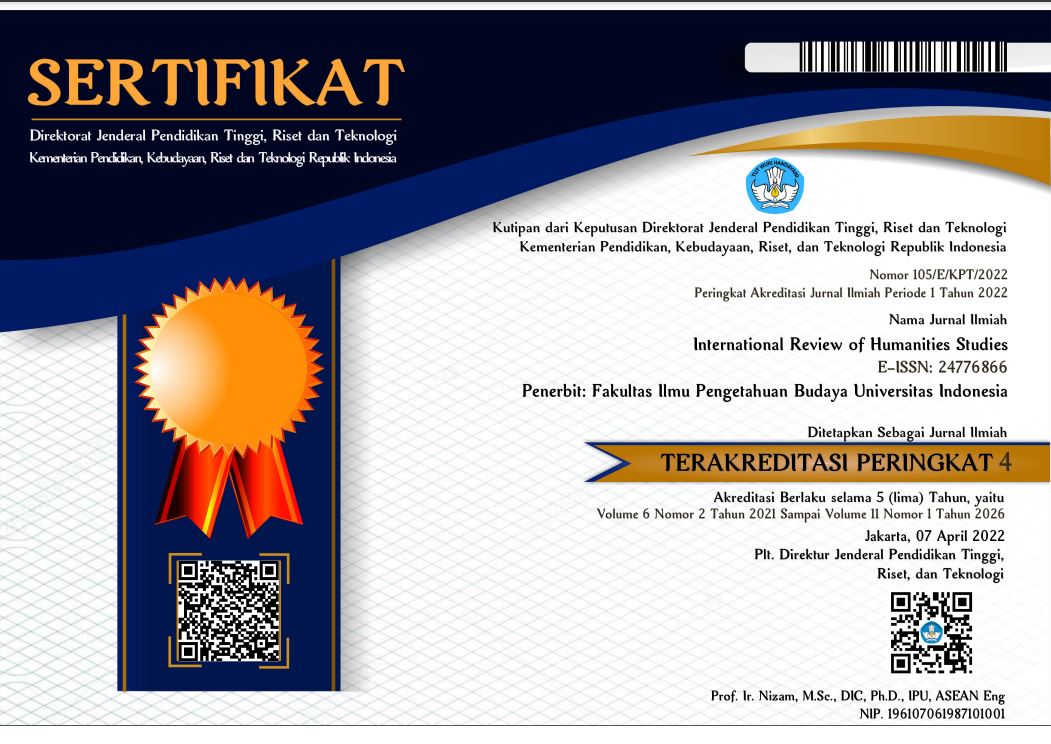International Review of Humanities Studies

Abstract
The fantastic (le fantastique) is a literary genre that originated from France, which has a specific characteristic of an ambiguous event that cannot be found in other literary works from other countries that introduce similar genres. This study discusses the translation strategies used to translate these fantastic events in Venus dari Kota Ille, the Indonesian translation version of the fantastic story of La Vénus d'Ille by Mérimée (1837). The objective of this research is to see what strategies the translator use in translating the fantastic events that are present in the French version that contained uncanny elements and whether these elements are preserved in the Indonesian translation. By implementing the theory of translation techniques by Molina & Albir (2002), six translation strategies are found in Venus dari Kota Ille, namely established equivalent, literal translation, modulation, calque, compensation, and amplification. These translation strategies are used to maintain the uncanny element of supernatural creatures in the characteristics of a French fantastic story. In addition, the translator also creates a more intensive sinister element in the target text (TT) by using compensation. These results show that although there are differences in the characteristics of French and Indonesian literary works, these characteristics can still be maintained within the translation. However, this does not guarantee that the translator will not give any additions to the translation to emphasize the message in the TT.
Recommended Citation
Rizkya, Ria and Budiman, Arif
(2022)
"STRATEGIES USED IN TRANSLATING THE FANTASTIC EVENTS IN VENUS DARI KOTA ILLE,"
International Review of Humanities Studies: Vol. 7:
No.
2, Article 3.
DOI: 10.7454/irhs.v7i2.456
Available at:
https://scholarhub.ui.ac.id/irhs/vol7/iss2/3
Included in
Anthropology Commons, Art and Design Commons, Creative Writing Commons, Cultural Heritage Law Commons, Education Law Commons, Film and Media Studies Commons, History Commons, Intellectual Property Law Commons, International and Area Studies Commons, Legal Writing and Research Commons, Linguistics Commons, Museum Studies Commons, Philosophy Commons, Urban Studies and Planning Commons


